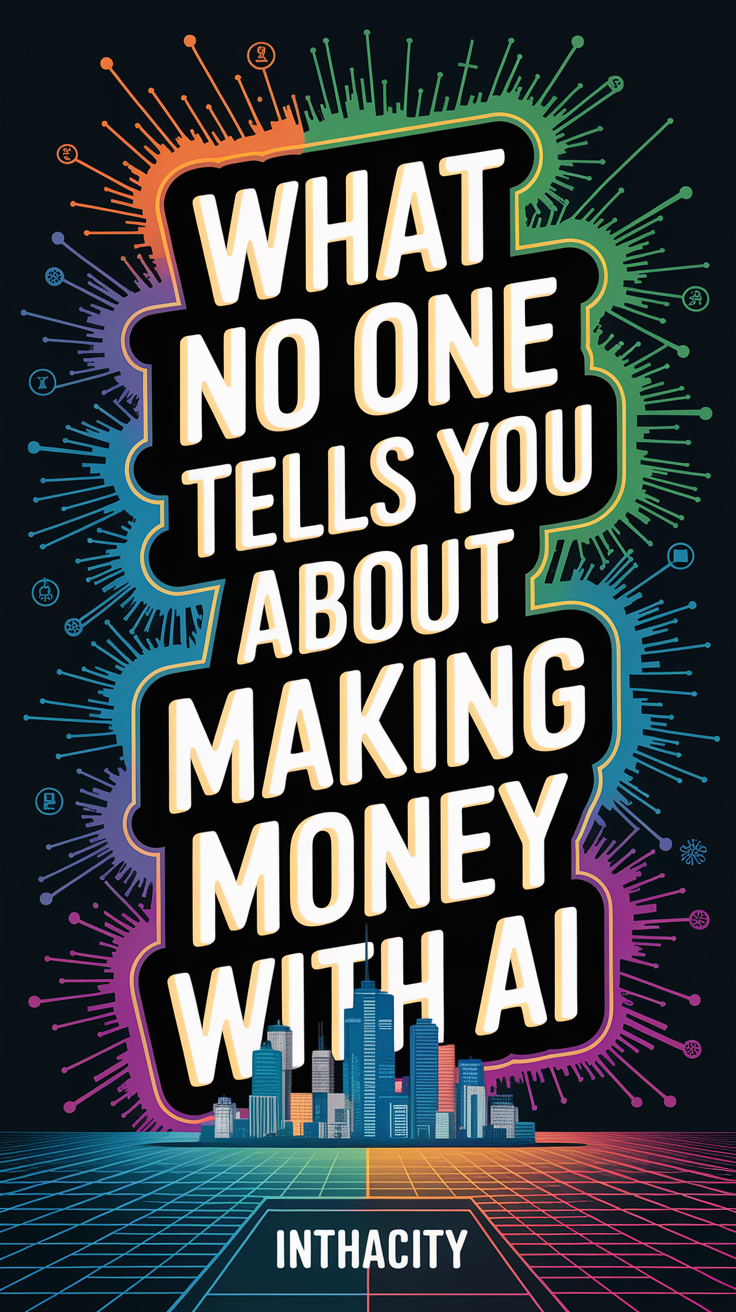Artificial Intelligence (AI) is the buzzword of the decade, and everyone from tech enthusiasts to casual observers is eager to dive into the AI gold rush. But here's the thing: making money with AI isn’t as straightforward as it seems. While the headlines scream about billion-dollar startups and futuristic innovations, the reality is messier, more nuanced, and, dare I say, a little bit disappointing. Let’s peel back the curtain and uncover what no one tells you about making money with AI.
The AI Hype vs. Reality
First off, let’s address the elephant in the room: the hype. AI is everywhere—chatbots, self-driving cars, personalized recommendations, you name it. But here’s the kicker: not every AI application is a cash cow. Sure, companies like OpenAI have made headlines with ChatGPT, but replicating their success is easier said than done. The truth is, AI requires significant investment in infrastructure, talent, and data. And even then, there’s no guarantee of success.
For example, Amazon uses AI to optimize its supply chain and recommend products, but building something similar from scratch would cost millions. Unless you’re sitting on a pile of cash or have a killer idea, breaking into the AI market is like trying to win the lottery—possible, but improbable.
The Hidden Costs of AI
Speaking of investment, let’s talk about the hidden costs of AI. Sure, open-source tools like TensorFlow and PyTorch make it easier to get started, but that’s just the tip of the iceberg. You’ll need powerful hardware, cloud computing resources, and a team of experts to build, train, and deploy your AI models. And let’s not forget about data—lots and lots of data.
Here’s a breakdown of what you might spend to get started:
- Hardware: High-performance GPUs can cost upwards of $10,000. Alternatively, you could rent cloud computing resources, but that can add up quickly. Check out GPUs on Amazon.
- Software: While open-source tools are free, specialized software and APIs can be expensive.
- Data: Acquiring and cleaning data is time-consuming and costly. Quality data is the backbone of any AI system.
- Talent: AI experts are in high demand, and salaries reflect that. Expect to pay top dollar for skilled developers and data scientists.
The AI Skills Gap
Another challenge is the AI skills gap. While demand for AI expertise is skyrocketing, supply hasn’t kept up. As a result, companies are scrambling to hire qualified professionals, driving up salaries and making it harder for startups to compete.
But don’t despair—there’s hope. Platforms like Coursera and Udemy offer affordable AI courses, and you can also find free resources on YouTube. The key is to invest in learning and build your skills over time. Rome wasn’t built in a day, and neither is a successful AI career.
The Ethics of AI
Now, let’s touch on a topic that’s often overlooked: ethics. AI has the potential to revolutionize industries, but it also comes with ethical dilemmas. From bias in algorithms to privacy concerns, navigating the ethical landscape of AI is tricky.
Take facial recognition technology, for example. While it has legitimate applications in security and law enforcement, it’s also been criticized for racial bias and invasions of privacy. Companies that ignore these issues risk backlash, lawsuits, and reputational damage. So, if you’re planning to make money with AI, tread carefully and consider the ethical implications of your work.
The Future of AI
Despite the challenges, the future of AI is bright. As technology advances, costs will come down, and new opportunities will emerge. The key is to stay informed, adapt to change, and keep an eye on emerging trends.
Here are a few areas to watch:
- Generative AI: Tools like ChatGPT and DALL-E are just the beginning. Generative AI has the potential to transform industries like marketing, design, and entertainment.
- AI in Healthcare: From diagnosing diseases to developing new drugs, AI is poised to revolutionize healthcare.
- AI in Finance: AI-powered algorithms can analyze market trends, detect fraud, and personalize financial advice.
Final Thoughts
Making money with AI isn’t easy, but it’s not impossible either. The key is to approach it with realistic expectations, a solid plan, and a willingness to learn. Remember, every overnight success is the result of years of hard work and perseverance.
So, what’s your take on making money with AI? Is it a golden opportunity or a fool’s errand? Share your thoughts in the comments below and join the conversation. And if you haven’t already, become part of the iNthacity community, apply to become a permanent resident, and help us build the Shining City on the Web. Like, share, and let’s make AI work for everyone!

Disclaimer: This article may contain affiliate links. If you click on these links and make a purchase, we may receive a commission at no additional cost to you. Our recommendations and reviews are always independent and objective, aiming to provide you with the best information and resources.
Get Exclusive Stories, Photos, Art & Offers - Subscribe Today!
























Post Comment
You must be logged in to post a comment.